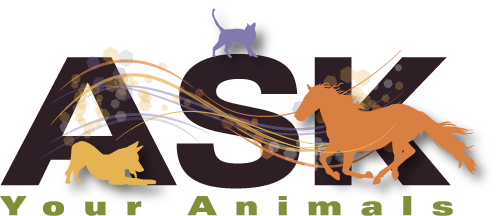I’m sure you’ve heard the saying “A dog is a man’s best friend”. There’s no denying that these loyal and loving animals can really be our best friends and companions. While they can be our best buds, this doesn’t mean that we completely understand each other. Think about our relationships with humans whom we speak the same language with. There are still so many misunderstandings. Imagine how many misunderstandings there are between dogs and humans! Below, I outline some common dog behaviors and common misconceptions about them to help you foster a better relationship with your furry friend.
Barking
Dogs will be dogs and barking is what they do to communicate with everything – humans and animals. While barking is normal, it can be excessive so it’s important to be aware of why your dog is barking.
If they are barking because someone is at the door, it’s their instinct to protect you. If your dog is just standing in front of you and barking for no apparent reason, they could just want attention, may need to go outside, or may be hungry. The reasons a dog barks are infinite so remember that if it’s starting to get on your nerves, yelling is only going to fuel the fire. It’s important to remain calm and communicate in a non-aggressive way. After all, your dog doesn’t necessarily know what you’re communicating to him.
Misconception: The dog should understand what I want from him.
No dog instinctively understands the rules for living amongst humans. The boundaries and expectations that we hold for our pets must be defined and trained for the dog to understand. While our dogs do learn to interpret our tone of voice, posture, and facial expression, they do not understand our words. Consistency, patience, practice, and positive reinforcement are our best tools to cultivate understanding in our dogs.
Aggression
Do you have that dog that, no matter what, always shows aggression towards people or other animals, especially dogs? If a dog doesn’t get much time around others, they may show their protector instinct as a default behavior because they don’t know how to communicate with others, even their own kind.
Misconception: Dogs always understand one another.
It is true that dogs have a “language” all their own. They use stance, posture, facial expression, and tail wagging to indicate to other dogs their intent to play or avoid contact. Most dogs will pick up on this non-verbal language shared by many breeds and interpret it correctly. However, there are many dogs that were not socialized at an early age, or at all, and will not understand the customary signals. Help your dog to learn this language early through careful socialization and plenty of dog play.
Chewing
If you’ve had a puppy before, you’ve probably experienced the chewing stage to some degree. Dogs are chewers because they use their mouths for exploration, second to their noses. Since puppies have so much to get familiar with, they tend to chew more often. What about those dogs who are no longer puppies that are still chewing everything? You may get very upset with them because they should “know better”, which brings us back to our first misconception. It also may be because they are not given what they need to keep from being bored and use chewing as a way of entertainment. They could also not like their environment and chew to destruct it. Regardless of the reason for chewing, it’s not always the dog’s fault.
Misconception: It’s always the dog’s fault
There are so many times when a dog is punished or corrected for what we call “bad behavior” when in fact, the behavior is a completely natural one for a dog. Quite often the misbehavior is simply a misunderstanding of our expectations. As responsible dog owners, we should always ask ourselves what role we have played in this behavior we have labeled “bad”. Have we taken the time to clearly teach the required skill? Have we trained clear boundaries and made our expectations clear so our dog can understand? Take the time to put yourself into the dog’s perspective and see the world as they do. Is it still clear that this was “bad behavior”?
Digging
Going back to the point of being bored, your dog could be excessively digging because they have nothing to keep them entertained. Remember that dogs who spend a lot of time outside will naturally dig because they want to bury a toy or because they want a cool place to lie down. If your dog is digging, you don’t have to task them with a “job” to stop it. There are other ways to mitigate digging.
Misconception: Dogs need a job
While it is true that boredom can cause all sorts of behavior issues, a “job” is not always the answer. Dogs have no concept of a “job” as we do. Dogs do need regular activity, and an environment that is enriched with sensory stimulation, and for some dogs, trained tasks give them stimulation and focus for their energy.
Dog Behavior Misconceptions Can Be Lessened with Animal Communication
Misconceptions are a part of life and at the same time, there don’t have to be so many. Hiring an animal communicator can help you get an understanding of why your dog has certain behaviors. Once you have an understanding, you can work together to change those behaviors.
I’d like to leave you with two things to keep in mind about your dogs as you embark on the journey of better understanding.
- Dogs don’t experience guilt. The postures and expressions we see in a dog and interpret as guilt are usually fear or anticipation of punishment. This is based on the owner’s posture and tone of voice, not guilt from a past behavior. Therefore, you should use positive reinforcement to change behavior, as scolding them will not make them feel guilty and not do the act again.
- You can teach an old dog new tricks. Old dogs can absolutely learn new tricks. If the dog is mentally and physically able to respond to cues and rewards, it can learn. In fact, learning a new skill or trick can add interest and energy to an older dog and enrich his senior years.



